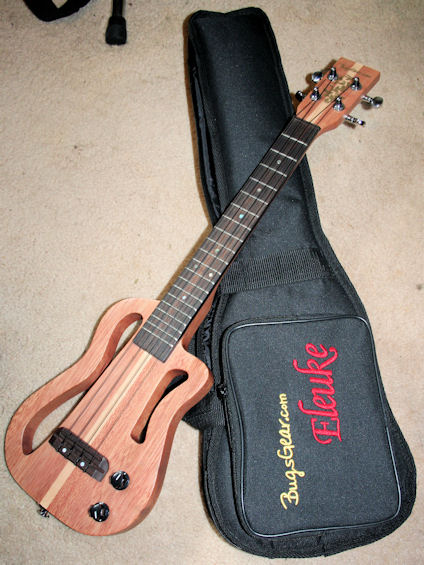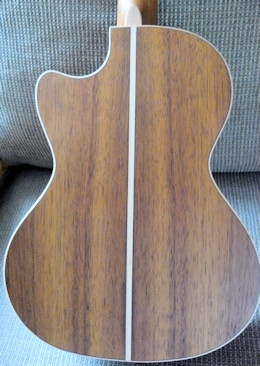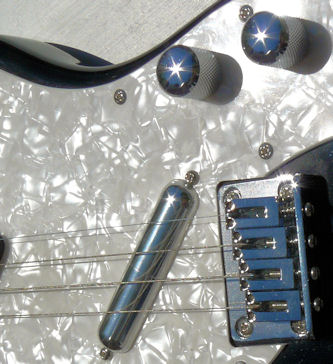



Pronunciation and Verbal Abuse
Is it ukulele or ukelele? Both spellings have been used ever since the uke was introduced to the USA in the early 1900s. Most of the vintage song books and song sheets I've collected from the 1920s and 30s spell it "ukelele."
Aaron Copland named his jazz piece "Ukelele Serenade" (which, by the way, has no ukes in it!).
The most common spelling today is ukulele. However, you will still find both online and used by eBay sellers. So if you're searching for a bargain, search for both terms!
The proper pronunciation is always a hot topic on the forums. The Hawaiian pronunciation is "ook-oo-leh-le." Purists, Hawaiians and aficionados prefer that. And they're right, at least if you're visiting Hawaii.
Like many other words absorbed into English - like vanilla, for example - it usually gets pronounced by the rules of English, not its native tongue. Most people in North America call it a "you-koo-lay-lee" or even "you-kuh-lay-lee." That works, too, and most people will understand what you mean, even the purists.
But when you simply call it a "uke" do you pronounce it "yook" or "ook"? The latter would be correct, but could lead to some amusing moments.
Your incorrect pronunciation may be rewarded with smirks or frowns on the islands and in refined uke circles, but on the continent calling it a "you-koo-lay-lee" will at least be understood. If you insist on being politically correct about it, you can then introduce the proper pronunciation into the conversation and leave others enlightened.
You may sometimes run across references to a "taro patch fiddle" - one of the names by which the ukulele and other Portuguese instruments were known, in the late 19th century. That's because the small instrument was often taken to and played in the taro fields by workers.
The origin of the word ukulele
The word ukulele has been attributed to several sources in Hawaiian. The most commonly repeated one is that it means "jumping flea" after the way the first performer's (Joao Fernandes') fingers danced on the fretboard.
Others claim it is from a mix of ukeke (a plucked, three-string traditional Hawaiian instrument) and "mele" meaning song. Or from uku, meaning "gift or reward," and lele, meaning 'to come"
Another is that it comes from "ukeke lele" or dancing ukeke.
An intriguing origin theory is found
here:
By 1886 the instrument came to be known as the taro patch fiddle
and was popular even with the royalty. King David Kalakaua had
accepted and was playing the taro patch fiddle. Isobel Strong
writes: “He would occasionally pick up a ‘ukulele or a guitar and
sing his favorite Hawaiian song, Sweet Lei-lei-hua.” It is said that
the King’s chamberlain Edward Purvis who also played the instrument,
had the nickname ‘ukulele (jumping flea) because of his antics.
Since he was associated with the instrument, the Hawaiians began
using the word ‘ukulele instead of taro patch fiddle.
Despite the above, no one really knows for certain. None of the hypotheses have been verified by any linguist as far as I am aware, but "jumping flea" (sometimes "dancing flea") seems to have taken the lead in the popular imagination - a meme - so it's probably going to stick.
